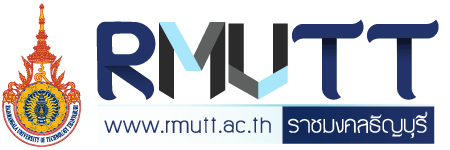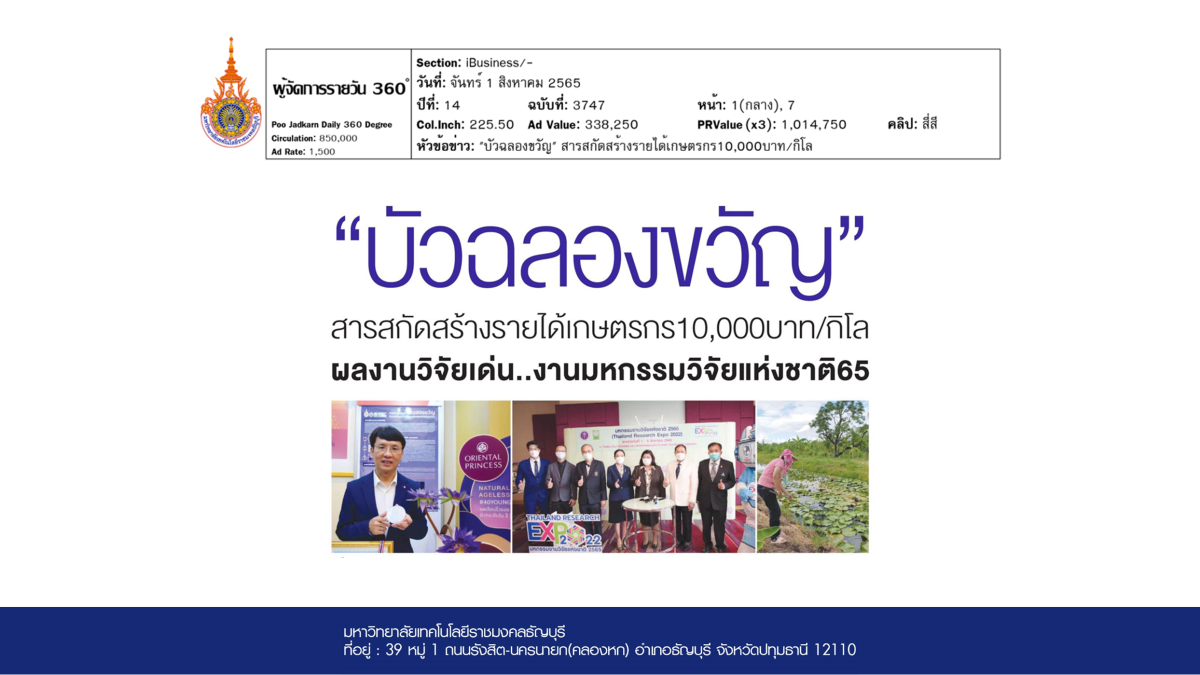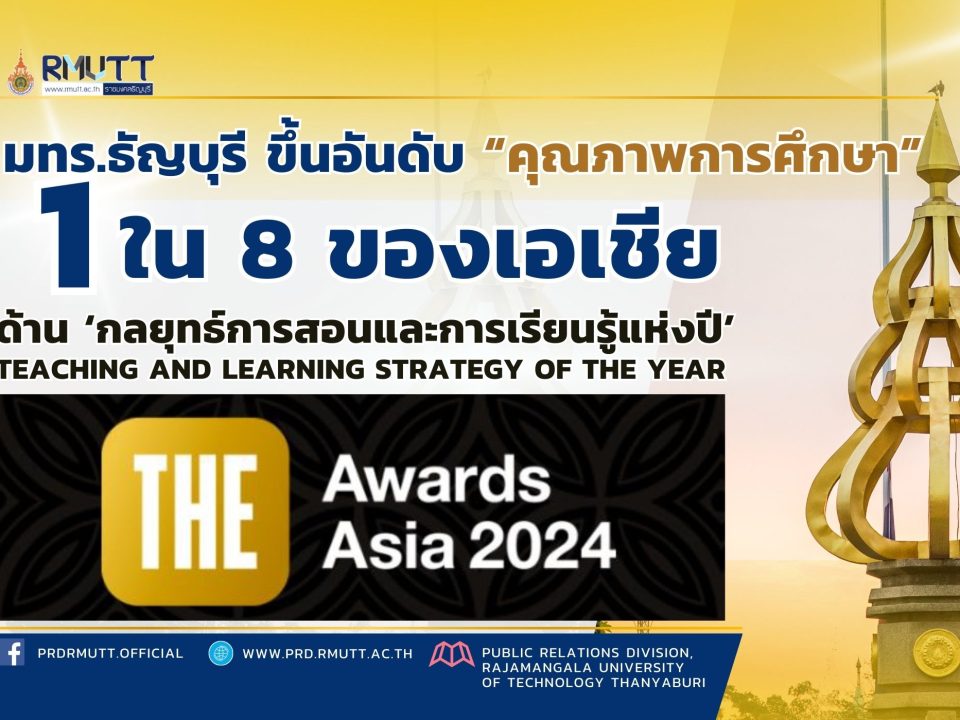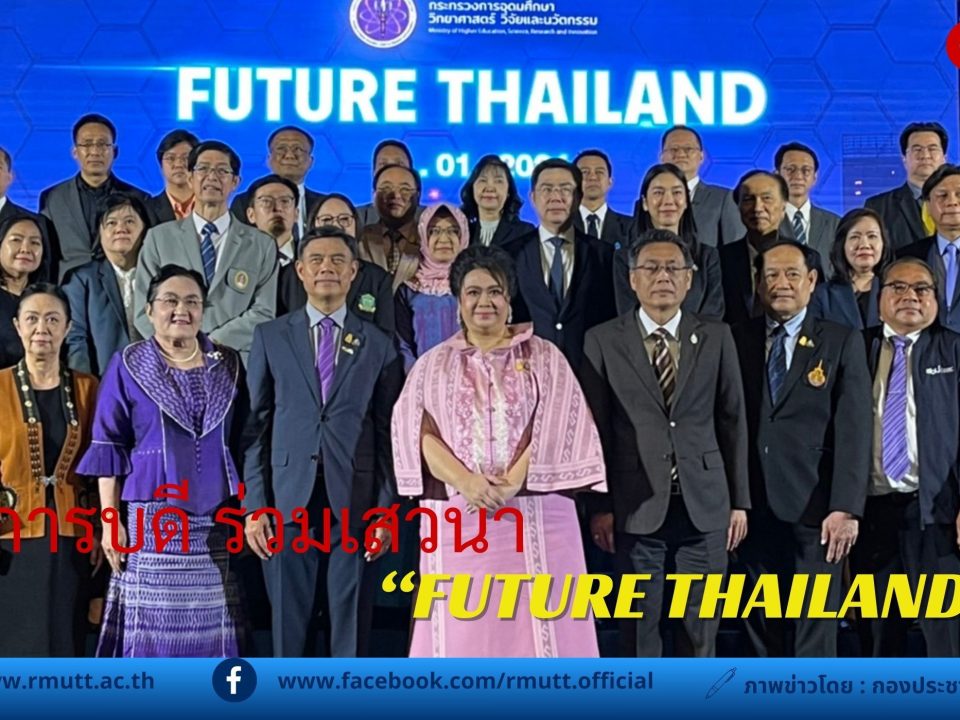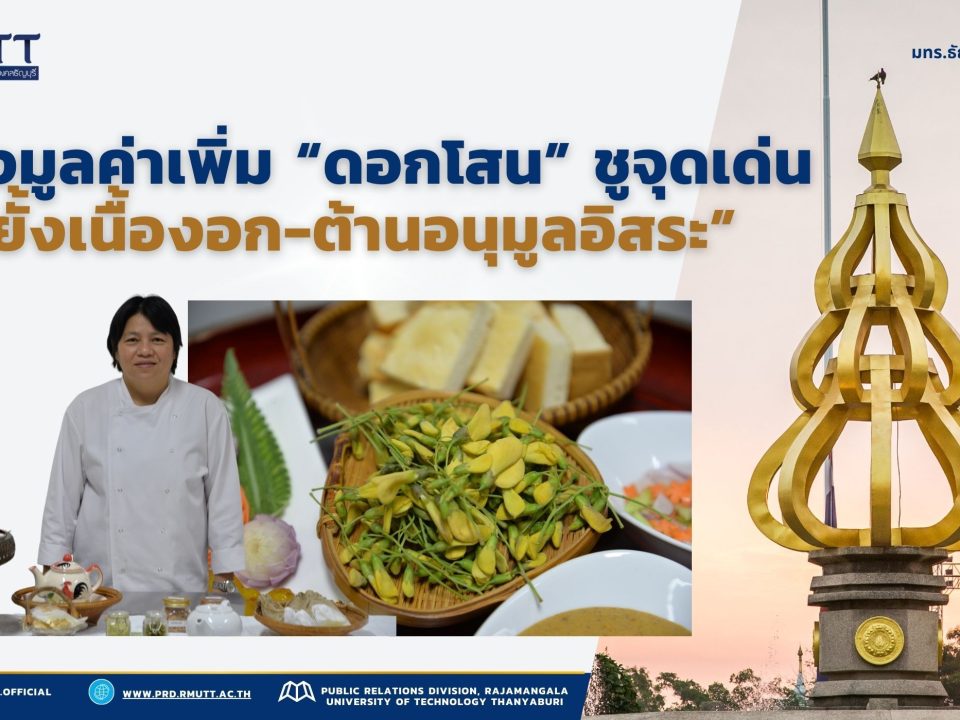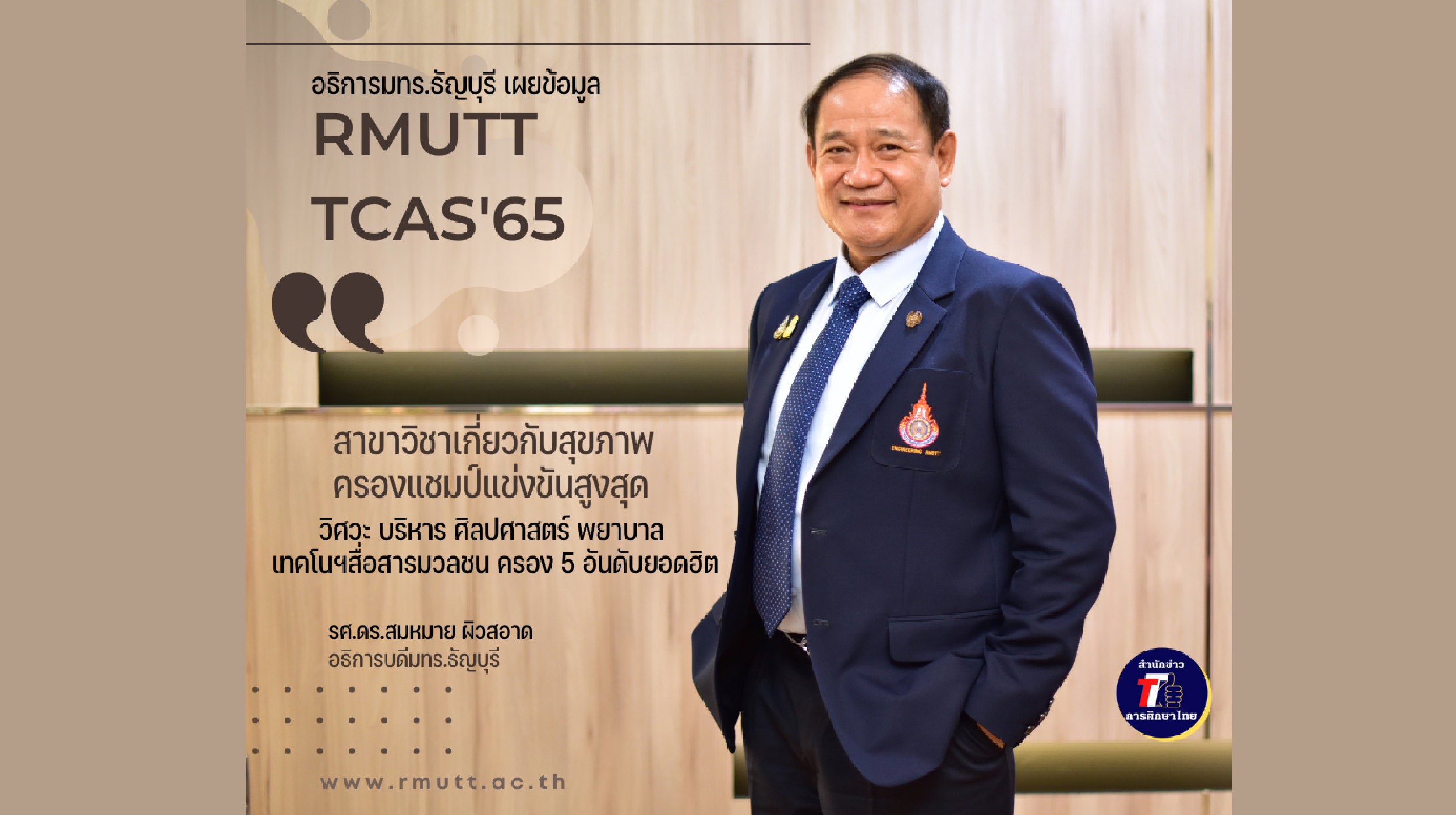
RMUTT reveals TCAS 65
01/08/2022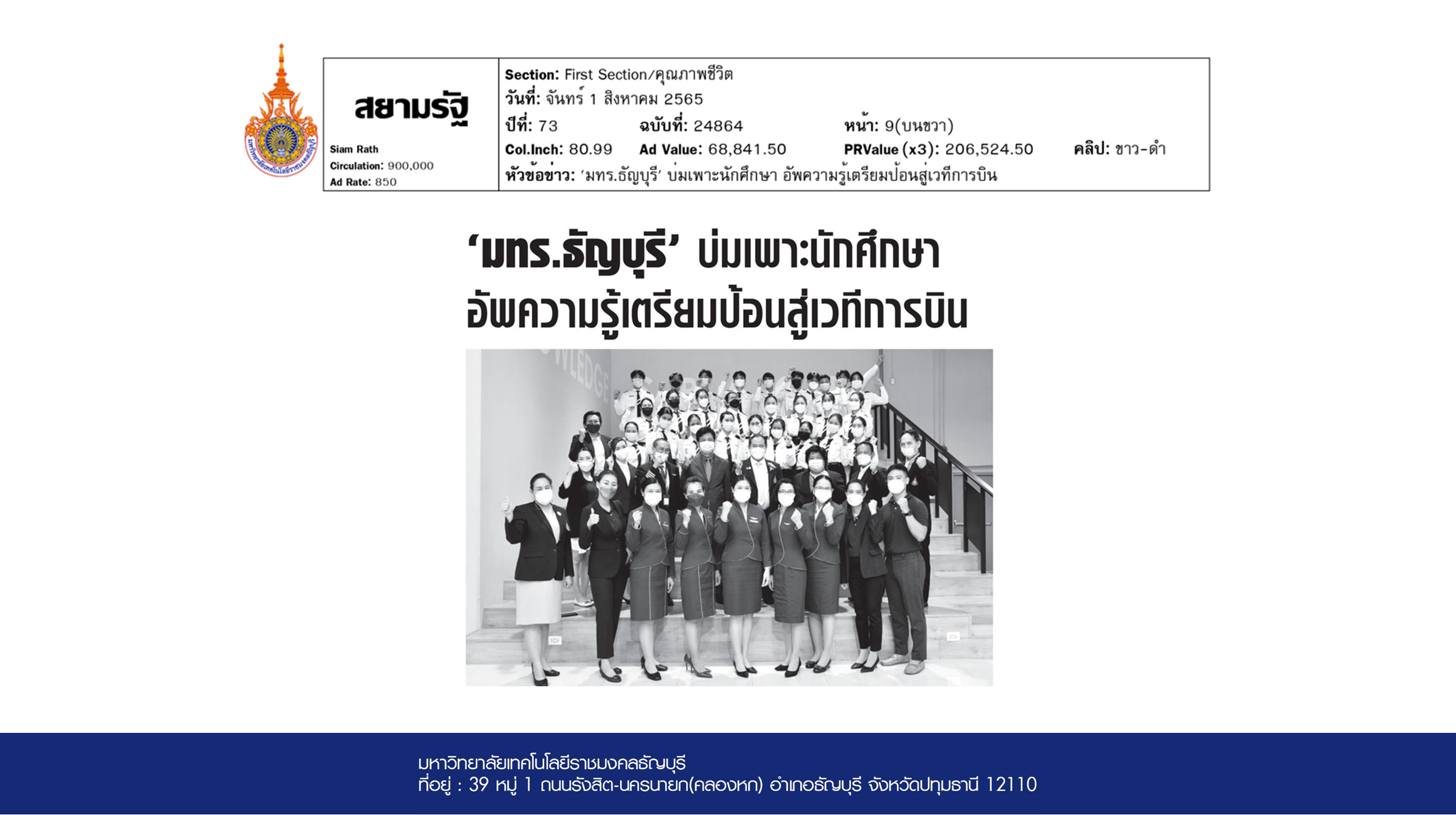
RMUTT expand their students’ knowledge to build career in Aviation Industry
01/08/2022The National Research Council of Thailand (NRCT), Ministry of Higher Education, Science, Research and Innovation (MHESI) launched the 17th Thailand Research Expo 2022 which presents over 700 research and innovations projects conducted by both government agencies and private institutions to help build public awareness, knowledge exchange and integrate collaborations among related networks.
The research study on “Bua Chalong Kwan” water-lily extract is one of the scholarly works that enables production for higher value organic markets and for export. The team of RMUTT researchers who conduct the research aim to use the technology to help farmers, community enterprises, and local manufacturers earn more income with less total costs turning prospects into buyers which could benefit both buyers and sellers and become export ready.
Dr. Chanai Noisaeng, Head of the research team from Faculty of Integrated Medicine, Rajamangala University of Technology Thanyaburi (RMUTT), revealed, “We conducted this research to respond to the needs of Cosmetics Industry and fortunately, Innovation and technology assistance program (ITAP) under the supervision oof National Science and Technology Development Agency has provided us research funding to support the research. Currently, natural cosmetics means plant-based ingredients, scientific innovations and high growth rates, thus products made from ‘Bua’ or water-lily are quite preferable. Consequently, we have decided to select ‘Bua Chalong Kwan’ Water Lily’ originally bred by Mr. Chaipon Tammasuwan in 1998. The reason for selecting this type of breed is because they could commonly be found in several regions all over Thailand. ‘Bua Chalong Kwan’ is a several-time blooming aquatic perennial boasting very beautiful deep violet flowers. Regarding its very most chemical properties for cosmetic use, flavonoids, coumarins, saponins tannins terpenoids and cardiac glycosides are commonly found. In addition, this type of Nymphaea contains high phenolic compounds, according to researches acting as an antioxidant by reacting with a variety of free radicals. However, there are still limitations in regard to raw materials as the cultivation process of lotus extract which is likely to be contaminated with chemicals or pesticides. With the collaboration among research team, Dr. Chanai Noisaeng of RMUTT and Dr. Sawanee Buatone of Rangsit Science Centre for Education and representative from Oriental Princess, Kannika Vaiyasilpa, Vice Director of Research and Development of SSUP Group, plant cell culture technology was implemented to grow stem cells in the laboratory taken from shoots and root cells of the lotus which is called Callus. Callus could be extracted right away without any needs of growing into adult plants enabling to reduce the time of production, avoid any contaminations and produce in large quantities. Besides, special type of food culture was also produced to grow callus even better.” added Dr. Chanai Noisaeng.
Interestingly, after the successful process of extraction, the lotus extract was later handed to the locals to create cosmetics serum that worth more that 10,000 baht a kilogram. To ensure the success of manufacturing the product, the research team had implemented Micro/Nanoparticle technology to help improve the extract efficiency for better skin health through clinical testing and results of the testing was fruitful.
Dr. Chanai further explained, “This research success will not only be based on the research results but we also try to help our water lily producers by promoting them to grow more Bua Chalong Kwan and the private company will purchase those water lilies earning them high income. Currently, our project is being done at Klong Nopparat subdistrict, Nong Sue district, Pathum Thani. The locals earn 200 baht from growing only one Bua Chalong Kwan. Right now, another project regarding the research has also been conducted at Ta Podhi Mueng District, Pitsanulok in partnership between RMUTT and Ta Podhi Community Enterprise. Concerning the benefit gained by the private company, SSUP Group, for the last four months, the local producers had enabled to produce 10 kilograms of Bua Chalong Kwan a month earning them more than 16,000,000 baht per month. This research had also won several prestigious international prizes including Bronze Award from the 47th International Exhibition of Inventions of Geneva and Merit Award from International Strategic Technology Alliance in Geneva, Switzerland.
For those who are interested in ‘Bua Chalong Kwan’ research project, please join the 17th Thailand Research Expo 2022 which presents over 700 research and innovations projects. For online-registration, please register before August 25th, 2022 at www.researchexpo.nrct.go.th or contact 02-579-1370-9 ext. 515, 517, 518, 519 and 524 or www.researchexpo.nrct.go.th fan-page for further information.
During the 17th Thailand Research Expo 2022, Rajamanagala University of Technology Isarn (RMUTI) research team introduced cloth woven by silk mixed with rice straw fibre and its new weaving machine. The aim of this research aims to produce new innovator, help promote local entrepreneurship and increase local income to 50% as well as to cut 80% of total costs. Ms. Rattanarekkha Atchariyapitak, a lecturer at RMUTI’s Industrial Textiles and Fashion Design Department and head of research team, along with Ms. Lakkana Pitak, also a lecturer from RMUTI but from the Department of Agricultural Machinery Engineering and Ms. Rattanajira Rattanaprasert from the Department of Plant Science, RMUTI revealed, “This collaborative project is a 3-year research funded by the Programme Management Unit on Area Based Development (PMU A) of the Office of National Higher Education Science Research and Innovation Policy Council. The team visited a community in Khewa Sinarin sub-district and spent about three years working on the new project. At first, we planned to add value to rice straw waste through application of softening chemicals of rice straw which could be completed only 3 to 5 days. In 2021, we further developed a bio-fermented liquid made from local citrus fruit. The process was taken about three months but it was much safer and right away it cut the cost down to almost 80%. In addition, Ms. Lakkana Pitak who invented a tool to mix rice straw fibre with silk yarn made from leftover silk cocoons revealed that her machine was able to churn out the production of yarn one meter a minute. The fabric could used for producing many types of products such as clothes, suits for men and women, jackets, neckties, facemasks, hats, bags and souvenirs and currently, they are currently sold online and local stores.
If you are interested in Innovative rice straw fibers mixed with fiber from cocoon to develop special fabric, please visit the 17th Thailand Research Expo 2022 which presents over 700 research and innovations projects, held from August 1th to August 5th, 2022 at Centara Grand & Bangkok Convention Centre at CentralWorld, Bangkok.
